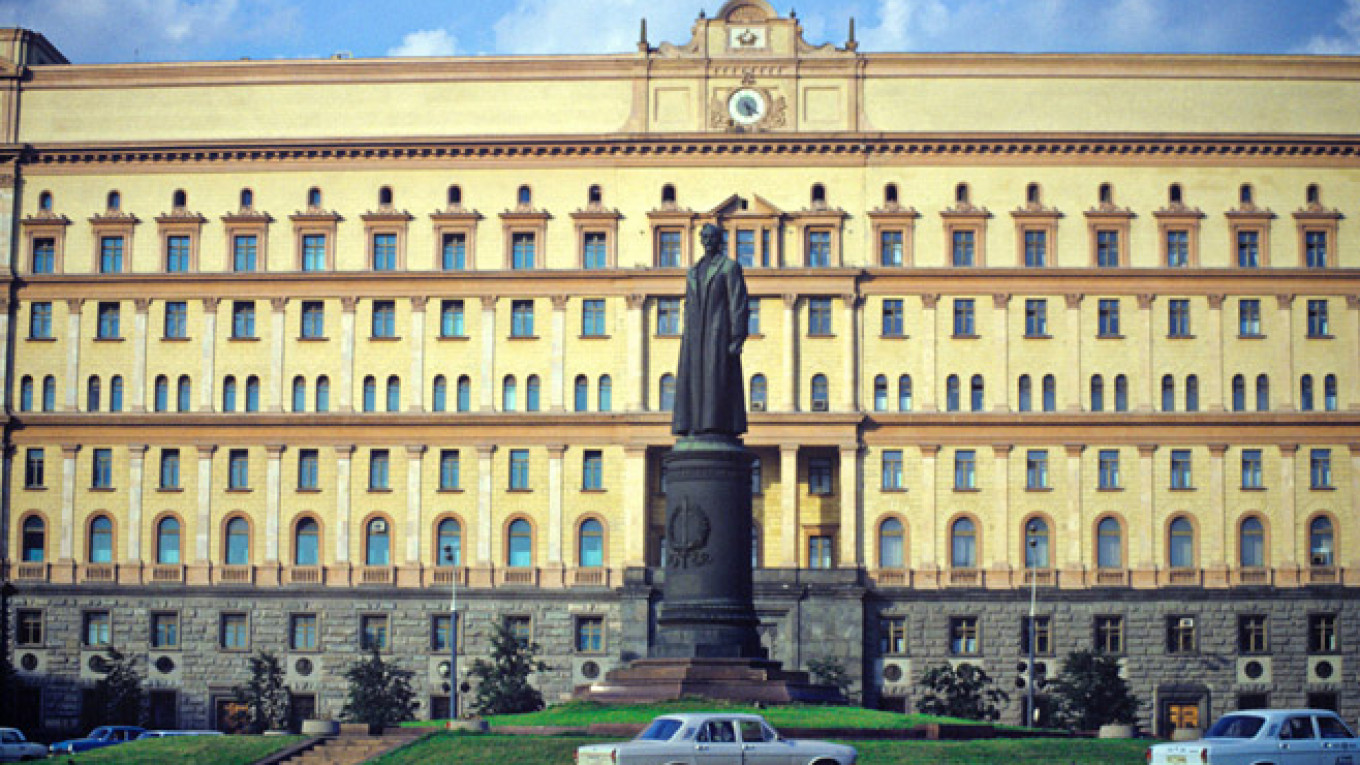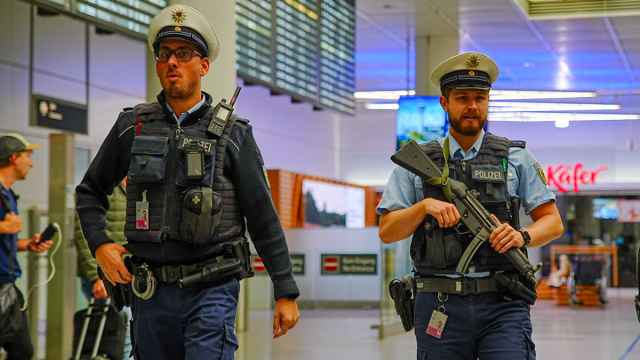When a young Vladimir Putin decided to fulfill his childhood dream of becoming a spy, he headed to the local branch of the KGB in Soviet Leningrad.
Wary of unsolicited applicants, the KGB officers turned Putin away, but not without some valuable advice: Go get an education, preferably in law. The current president was only in high school at the time.
Putin went on to apply to the law faculty at Leningrad State University, a path that would ultimately lead him up the ranks of the KGB, then on to St. Petersburg City Hall under the leadership of Anatoly Sobchak and ultimately to the Kremlin.
During his fourth year of legal studies, Putin was approached by a KGB representative to arrange his post-graduation employment, he says in his autobiography "First Person: An Astonishingly Frank Self-Portrait by Russia's President."
Fast-forward nearly five decades, and Putin would have only had to visit the website of the Foreign Intelligence Service (SVR) to familiarize himself with the requirements and obtain an application.
But what appears on the surface to be an exceedingly simple procedure is in fact a hotbed of nepotism, replete with hurdles only a select few individuals can expect to overcome, according to security experts.
The SVR is a successor to the KGB's First Chief Directorate, which was in charge of foreign operations and intelligence-gathering. Another offshoot of the KGB — the Federal Security Service, or FSB — also conducts limited activities in the former Soviet republics.
"The SVR is interested in filling its ranks with talented, well-educated, physically fit, brave and active young patriots, who are fluent in foreign languages," boasts an announcement posted on the agency's website. Perhaps unsurprisingly, foreigners need not apply.
"It is difficult to join the SVR. A candidate must make it through a long and difficult selection process," it says.
And even if an aspiring spy endures the process admirably — fulfilling all requirements, submitting all documentation, complying with all requests — he or she is highly unlikely to ever receive an actual job offer.
"Usually we don't like those who apply by themselves," said Mikhail Lyubimov, a former Soviet spy, referring to such applicants as "initsiativniki" (those who initiate by themselves).
According to Lyubimov, far superior is the method of active recruitment, whereby security officials approach promising potential candidates and lure them over.
"This requires both systemic work and an individualized approach at the same time," he said in a phone interview with The Moscow Times.
Viktor Cherkashin, Lyubimov's colleague, who famously recruited CIA officer Aldrich Ames and FBI agent Robert Hanssen in the 1980s, said the hiring process is extremely detailed.
"Every job and every individual has their own specific character," he told The Moscow Times in a phone interview. "For instance, I am not a musician, so I will never play in an orchestra."
Last week, Israel's infamously ghostly intelligence agency Mossad put its application process online.
The agency's newly revamped website even features a swanky recruitment video, replete with high-tech communication devices, drones, satellites and other props aimed at depicting an alluring James Bond lifestyle.
The narrator says in Hebrew "your imagination is my reality," and the banner at the top of the page reads "join us to see the invisible and do the impossible," according to a translation quoted by The Associated Press.
The Mossad recruitment site is available in English, French, Arabic, Persian and Russian. Visitors are given the option of filling in a form "to initiate cooperation" with the organization, noting that this is only a preliminary step in the overall hiring process.
The application, which the website warns is quite lengthy, seeks details on the applicant's personal life, education, military service, professional background and history of traveling abroad.
Back in Russia, though would-be spies can now obtain their applications online, they are still required to submit materials either in person or via snail mail.
Speaking about Mossad's reforms, Sergei Ivanov, the head of SVR's press bureau, said his agency believes that its recruitment process is adequate as it is.
"We believe that it must be the way it is. What we have is enough," he told The Moscow Times.
According to Mark Galeotti, a professor at New York University and an expert in Russian security affairs, the KGB back in Soviet times was a much more visible agency than Britain's Secret Intelligence Service MI6, which until the 1990s was never officially acknowledged to exist. Therefore, Russian intelligence services do not need much advertisement to attract eager recruits.
Irina Borogan, a leading expert in Russia's security services, said the agents are recruited at elite Russian universities, in particular from the Moscow State Institute of International Relations, which is run by the Foreign Ministry.
"The system is very monolithic, and recruitment is based on nepotism. The primary criterion is loyalty, and nothing else," Borogan said in a phone interview.
According to Borogan, intelligence service is regarded as a highly prestigious job in Russia.
"Several generations of the same families serve for the SVR. I haven't heard that they were interested in attracting people from the public," Borogan, deputy editor of the Agentura.ru website, told The Moscow Times.
Contact the author at [email protected]
A Message from The Moscow Times:
Dear readers,
We are facing unprecedented challenges. Russia's Prosecutor General's Office has designated The Moscow Times as an "undesirable" organization, criminalizing our work and putting our staff at risk of prosecution. This follows our earlier unjust labeling as a "foreign agent."
These actions are direct attempts to silence independent journalism in Russia. The authorities claim our work "discredits the decisions of the Russian leadership." We see things differently: we strive to provide accurate, unbiased reporting on Russia.
We, the journalists of The Moscow Times, refuse to be silenced. But to continue our work, we need your help.
Your support, no matter how small, makes a world of difference. If you can, please support us monthly starting from just $2. It's quick to set up, and every contribution makes a significant impact.
By supporting The Moscow Times, you're defending open, independent journalism in the face of repression. Thank you for standing with us.
Remind me later.






